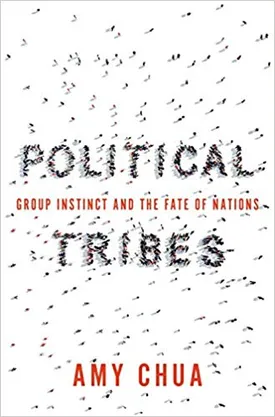Political Tribes: Group Instinct and the Fate of Nations by Amy Chua
Political Tribes: Group Instinct and the Fate of Nations, by Yale Law School professor Amy Chua, is a compelling book that analyzes the tumultuous political environment of contemporary nations. In her book, Chua examines group dynamics and tribalism in the political systems of the United States, China, and other countries. In doing so, she proposes changes to these systems in order to strengthen international security and preserve global stability.
Political Tribes begins by looking at the concept of “group instinct"—the instinctive drive to defend one’s own group even at the expense of rival groups. Chua argues that this drive has played a pivotal role in the development of modern-day nations and how they interact with one another. She outlines the ways in which this drive can manifest itself in political systems, from the polarization of parties in the United States, to the rivalry between China and its neighbors in the South China Sea. Chua also examines how tribalism has affected the responses of countries to global crises, such as the crisis in the Middle East.
In the second half of the book, Chua offers insight into specific strategies that can be employed to combat the dangerous impulses of group instinct. These measures range from the use of force to try and contain the spread of ethnic conflict, to the formation of cooperative and inclusive alliances. Chua also looks at the ways in which political leaders from different nations can strive to create a sense of shared purpose, by emphasizing the benefits of cooperation and by ensuring that all communities are included in decision making processes. By employing these measures, Chua believes that countries can ultimately break away from their tribalistic tendencies and ensure a more stable future for their citizens.
Political Tribes is a highly valuable book for anyone interested in understanding the complex dynamics that exist between countries in the modern world. By looking at the role that group instinct has played in geopolitical conflicts, and by proposing ways to use diplomacy and cooperation to counteract it, Chua offers an engaging and powerful argument for the creation of a more peaceful and secure world. Her analysis is sure to be of interest to those involved in international affairs, as well as to those who wish to understand the complexities of contemporary political issues.

